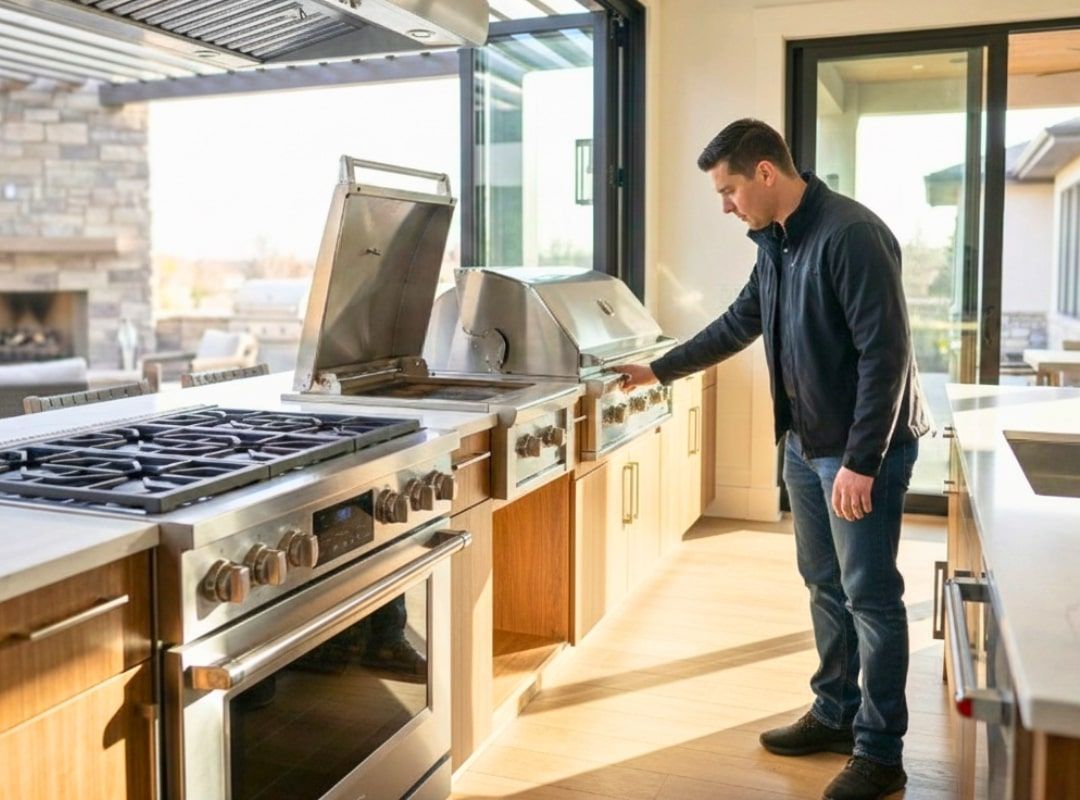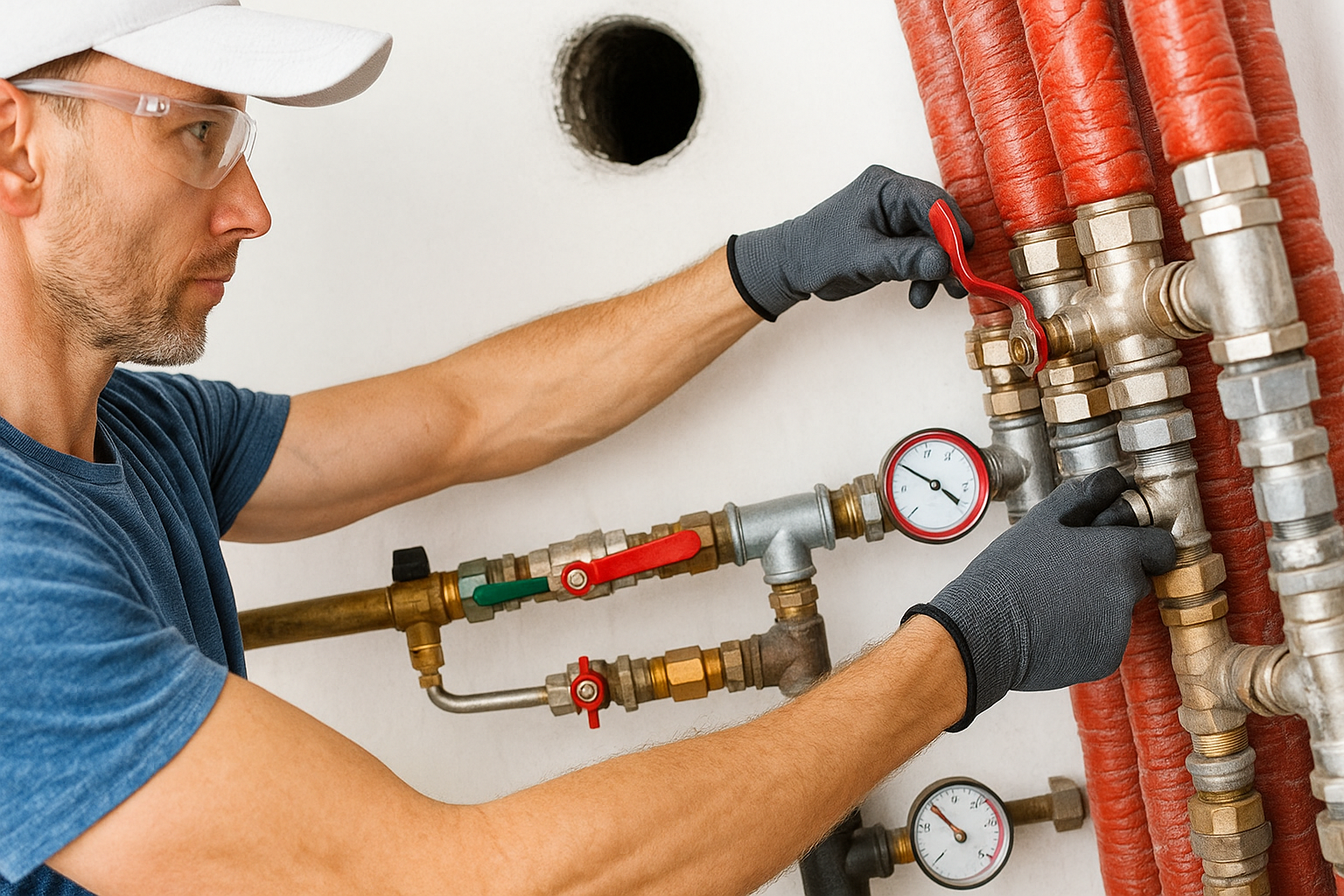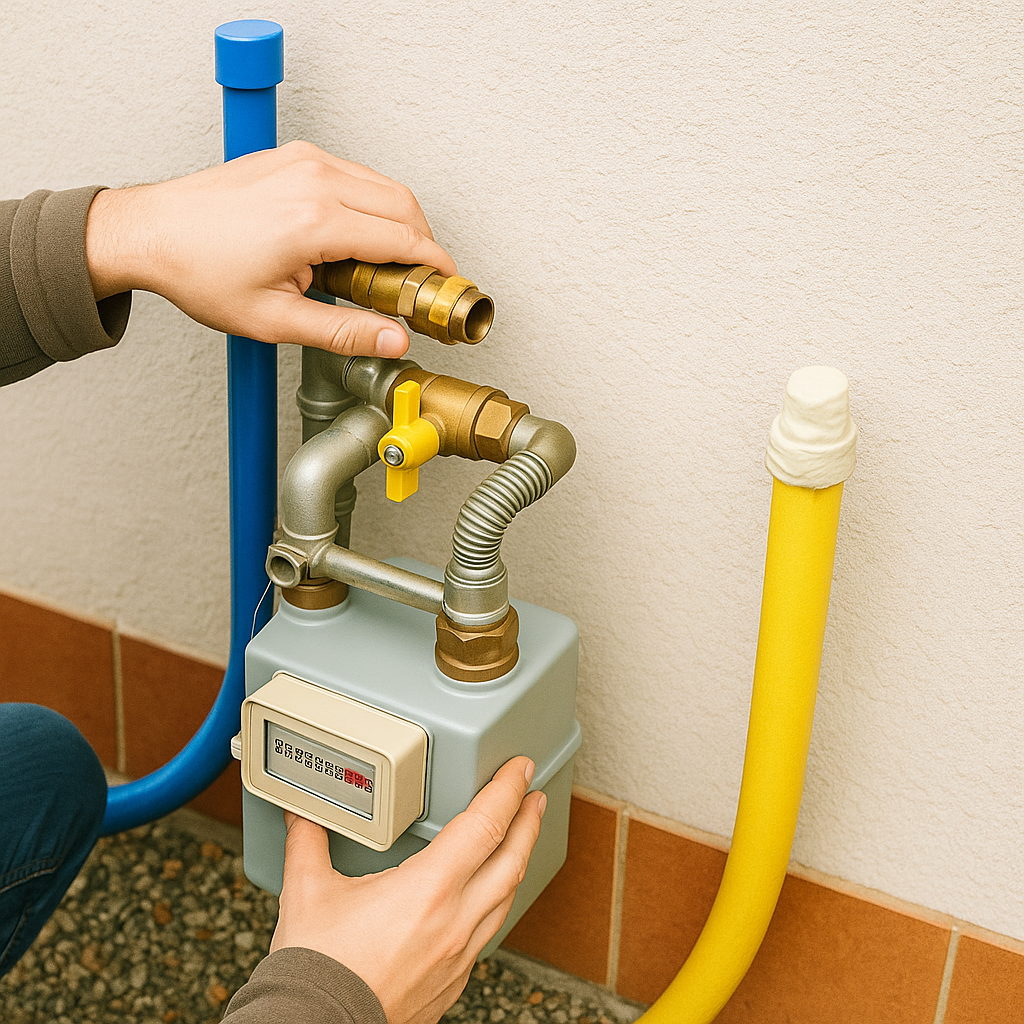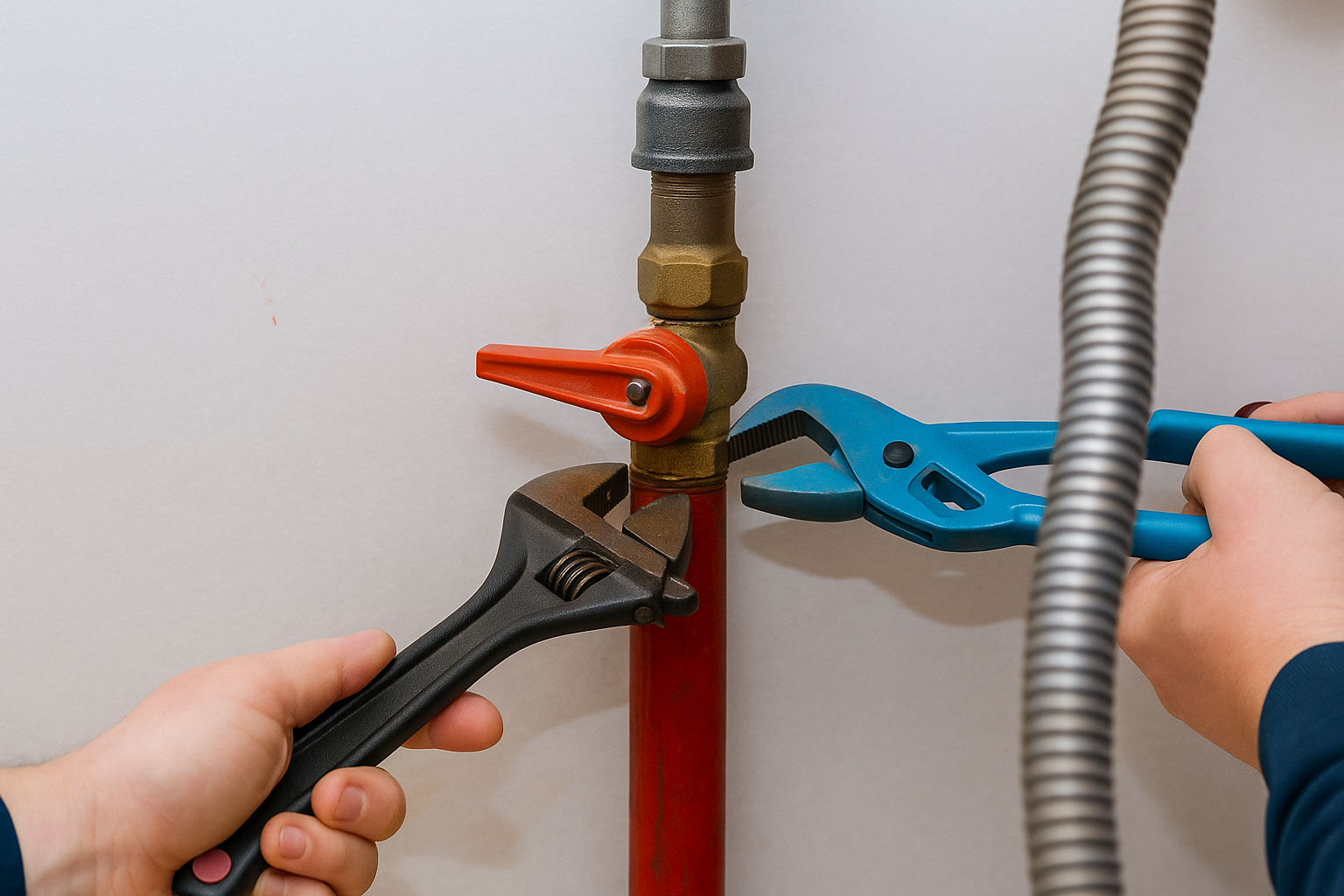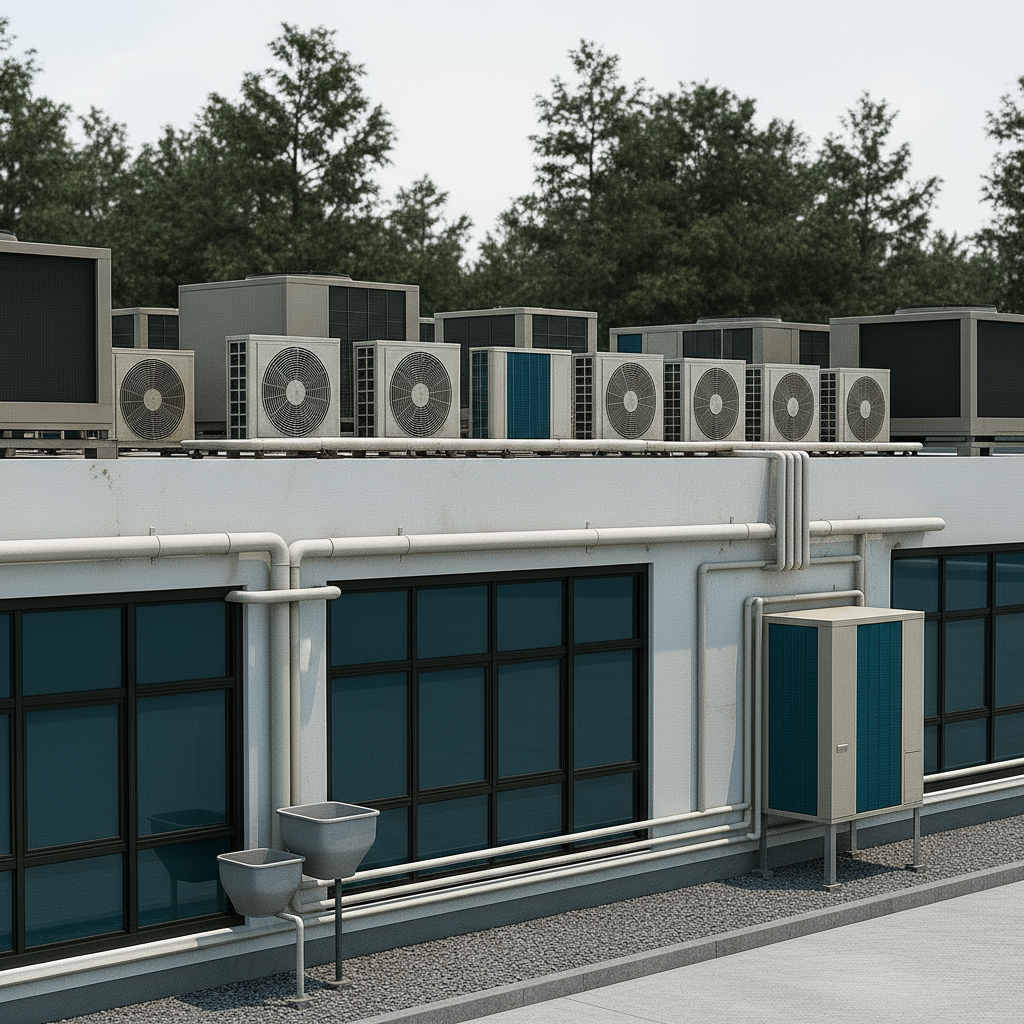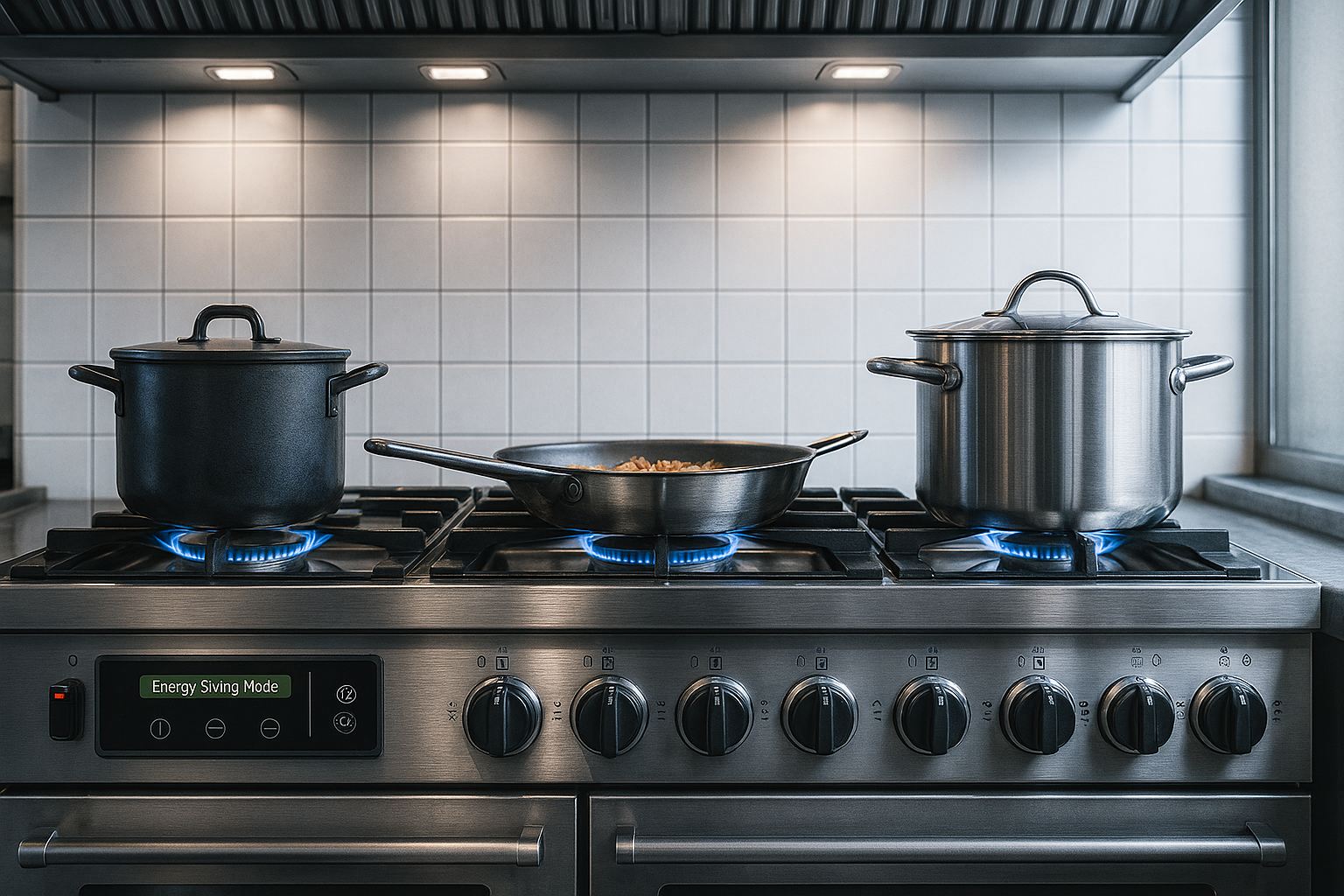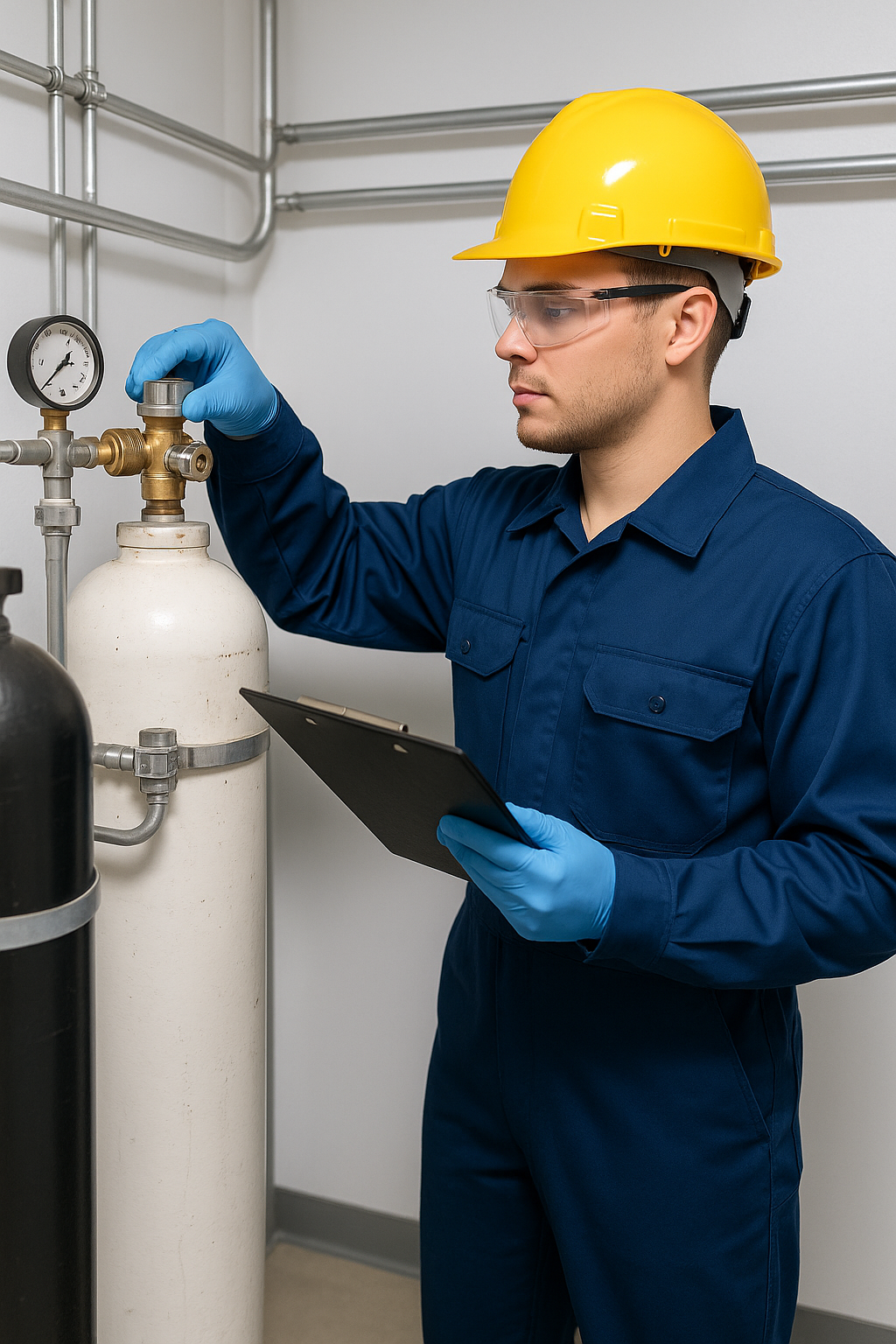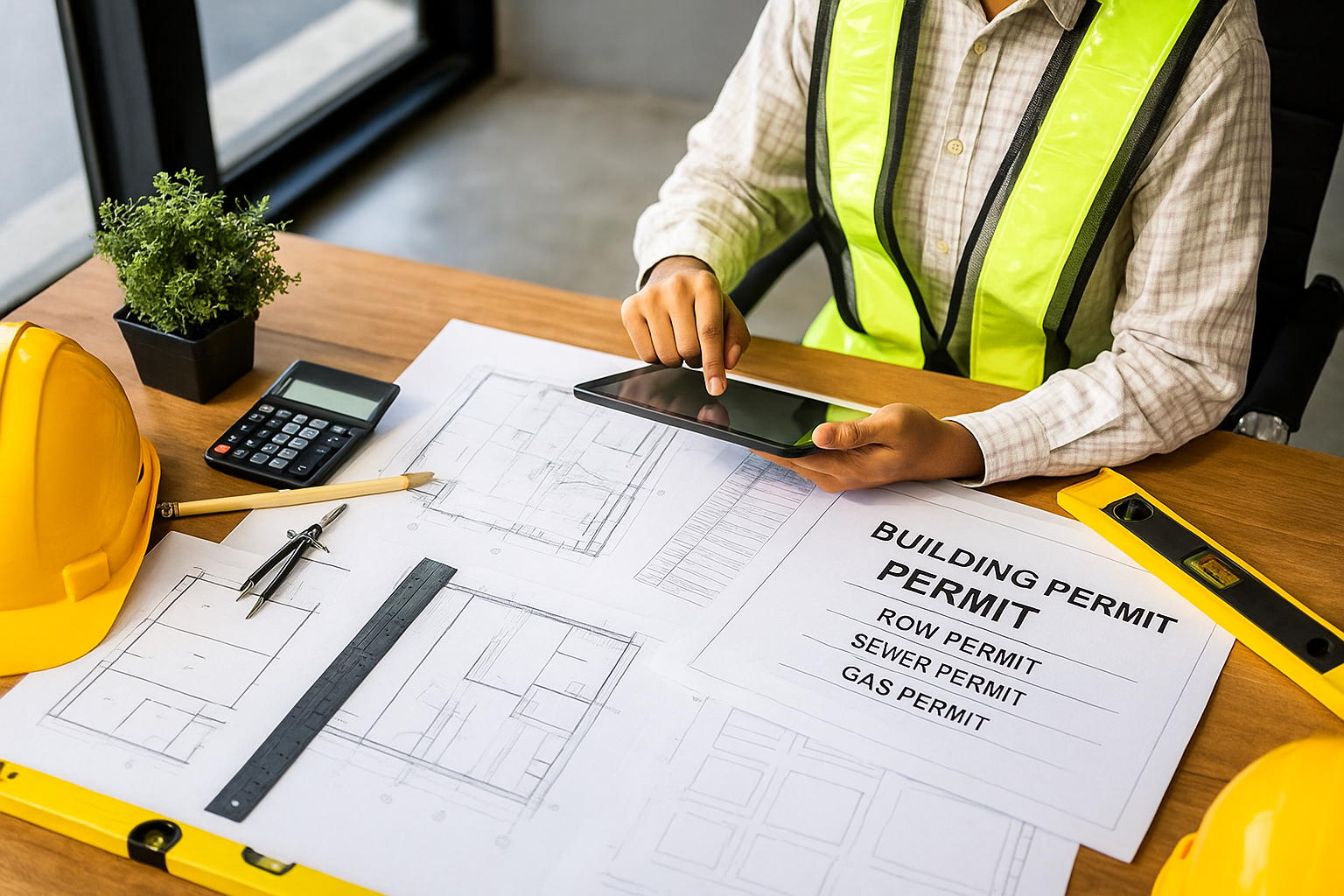Do You Need a Permit to Install a Gas Fireplace in Virginia?
TLDR;
Yes, in Virginia, a permit is generally required to install a gas fireplace. Most counties require a mechanical permit due to the involvement of gas piping and ventilation work. Always check with your local building department to confirm requirements in your specific area. If your fireplace not working issue leads to a new install, make sure you follow all permit rules before starting the project.
Overview: Is a Permit Always Required for a Gas Fireplace in Virginia?
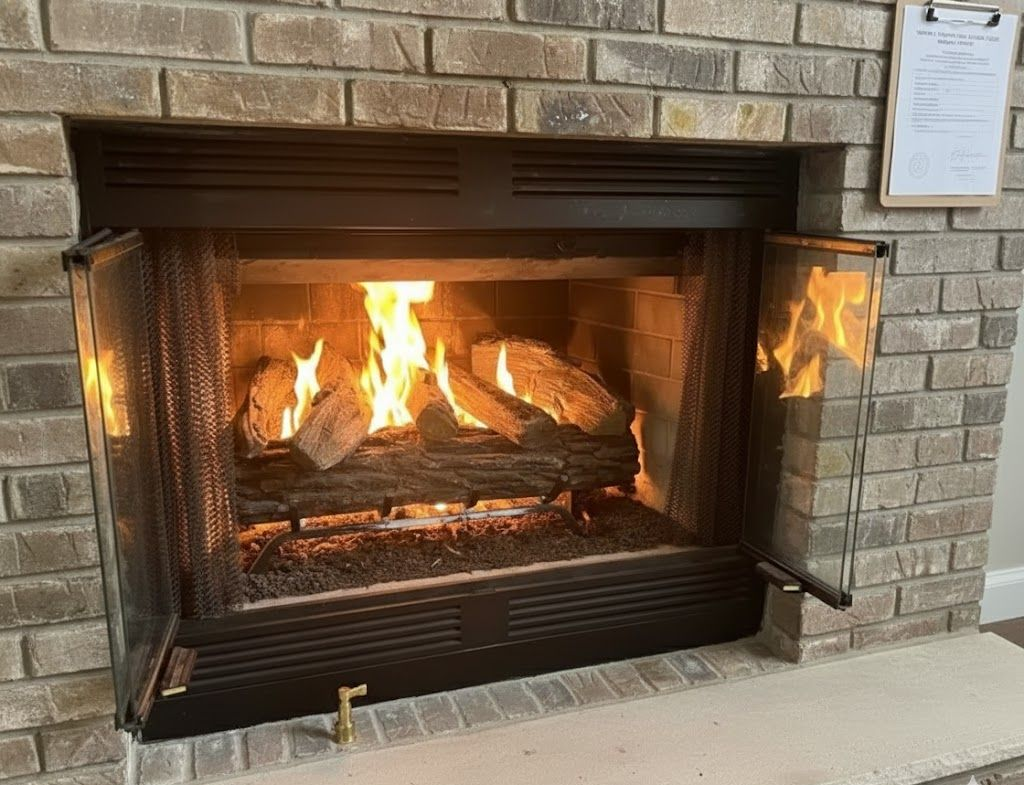
Installing a gas fireplace in Virginia nearly always requires a permit. Whether it’s new construction or a retrofit into an existing home, gas lines, ventilation systems, and combustion safety are all regulated under the Virginia Uniform Statewide Building Code (VUSBC).
Here’s why:
- Gas fireplaces involve fuel-gas systems, which fall under mechanical permit requirements.
- Improper installations can result in gas leaks, fire hazards, or carbon monoxide risks.
- Licensed contractors are required for most installations, and permits ensure they follow code.
The short answer:
Yes, you need a permit — but which type and how you apply will depend on your Virginia locality.
Understanding Permit Types for Gas Fireplaces in Virginia
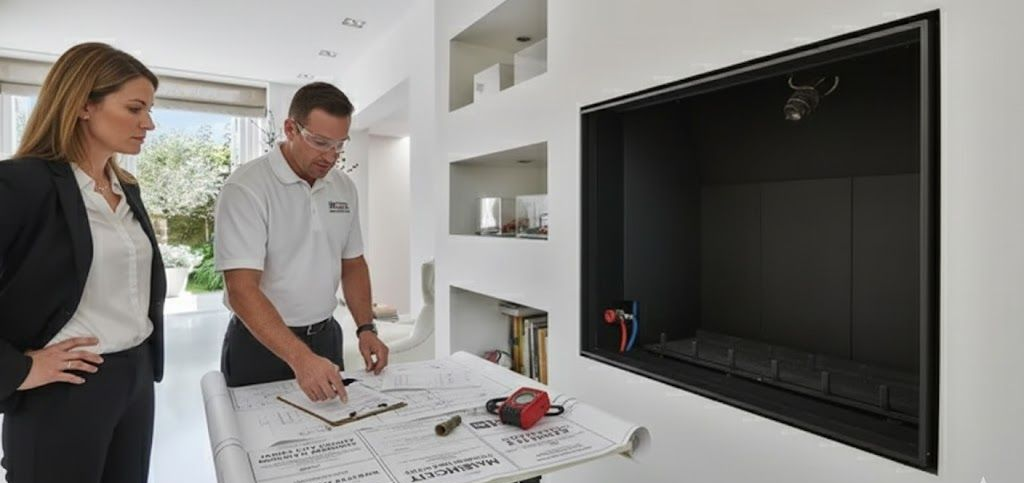
Different installations require different permits. Here’s how to know which one you’ll need:
Mechanical / Gas Permit
Most common for gas fireplaces.
Required when:
- Installing new gas lines
- Connecting to an existing gas system
- Replacing a gas fireplace with a newer model
Why it’s needed:
- Ensures gas piping, venting, and appliance connection meet
Virginia Mechanical Code and
IRC/IFGC standards.
- Inspections verify no leaks, proper combustion air, and safe flue termination.
This is the
primary permit for most gas fireplace jobs.
Building Permit
Only required in specific scenarios:
- Adding or removing
framing, walls, or
structural elements for fireplace housing
- Creating a new
chimney chase or
fire-rated enclosure
- Making changes to
venting systems through the roof or walls
Building permits apply
when construction work is beyond mechanical connections.
Local County-Specific Requirements in Virginia

Virginia has uniform state codes, but each county or city handles permits a bit differently. Here’s how several major areas approach gas fireplace permits:
Fairfax County
- Requires a
mechanical permit through the PLUS portal
- Permit fee: ~$90–$150 depending on complexity
- Inspection typically includes rough-in and final inspection
- Only
licensed contractors can apply
- Additional permits may be needed for
venting if it impacts exterior walls or rooflines
Falls Church
- Lists gas fireplaces as appliances requiring mechanical permits
- Must follow
International Fuel Gas Code (IFGC) guidelines
- Plans may be needed for non-direct vent models
Schedule an Emergency Inspection Today!
Henrico County
- Lists gas appliances under mechanical permit requirements
- Offers an easy-to-use Permit Center or phone application
- Recommends calling for
appliance-specific guidelines
- Inspection focuses on fuel supply, venting, and safety shutoffs
Prince William County
- Mentions
prefabricated fireplaces need a mechanical permit
- Also flags that
gas line work must be inspected separately
- You’ll need to submit a floor plan if venting or wall alterations are involved
Chesapeake
- Treats gas fireplaces under
residential mechanical permits
- Submissions include appliance specs and connection diagrams
- Vent termination (horizontal or vertical) must be clearly shown
- Final inspection required before fireplace use
Step-by-Step: How to Get a Gas Fireplace Permit in Virginia
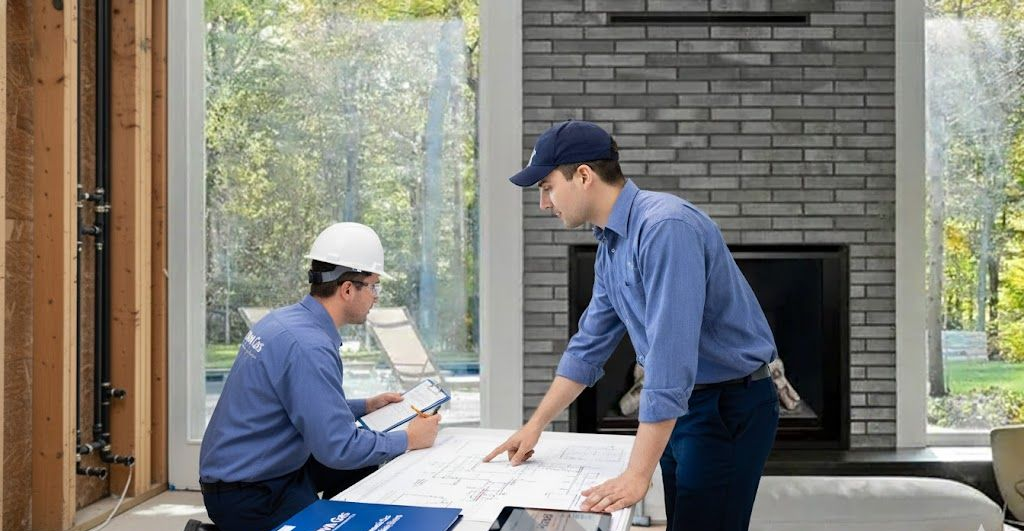
Here’s what you can expect during the process:
Step 1: Preparation
- Hire a licensed contractor with gas installation experience
- Collect necessary documentation:
- Manufacturer specs
- Vent layout diagrams
- Floorplans if structural changes are made
- Review
Virginia Residential Code (VRC) for guidance
- Check your local building department website for application rules
Step 2: Submit the Permit Application
- Online portals available in most counties (e.g.,
Fairfax PLUS, Henrico Permit Center)
- Choose the right permit type (usually
Residential Mechanical Permit)
- Upload:
- Appliance cut sheets
- Connection details
- Site or floor plans, if needed
- Permit fee varies:
- $50–$300 depending on county and scope
- Note: These prices are general industry estimates, not
Nova Gas Works’ pricing. Please call us for an accurate quote based on your specific project.
Step 3: Schedule Inspections
Most jurisdictions require
two inspections:
- Rough-In Inspection: Before walls are closed, to inspect gas piping and venting
- Final Inspection: After the unit is installed and operational
Pro tip: Be home during inspection to help streamline approval.
Schedule Expert Installation Help Today!
Virginia Building Codes for Gas Fireplaces: What to Know
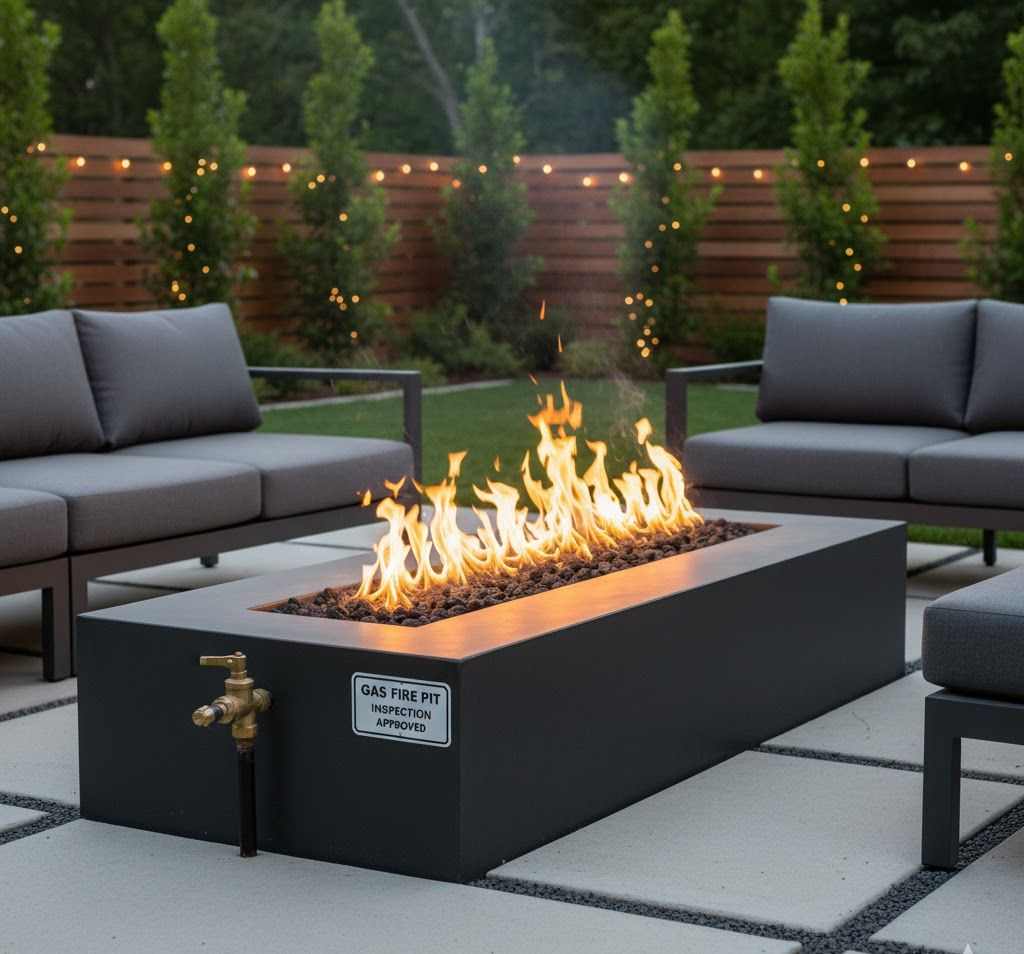
All
gas fireplace installations must comply with:
- Virginia Uniform Statewide Building Code (VUSBC)
- International Residential Code (IRC)
- International Mechanical Code (IMC)
- International Fuel Gas Code (IFGC)
Key focus areas:
- Venting: Proper clearance and termination
- Gas Piping: Material type (e.g., CSST, black iron), size, shutoff valves
- Combustion Air: Room size and venting for sealed vs unsealed units
- Fireplace Listing: Must be UL-approved and installed per manufacturer specs
What If You Skip the Permit?
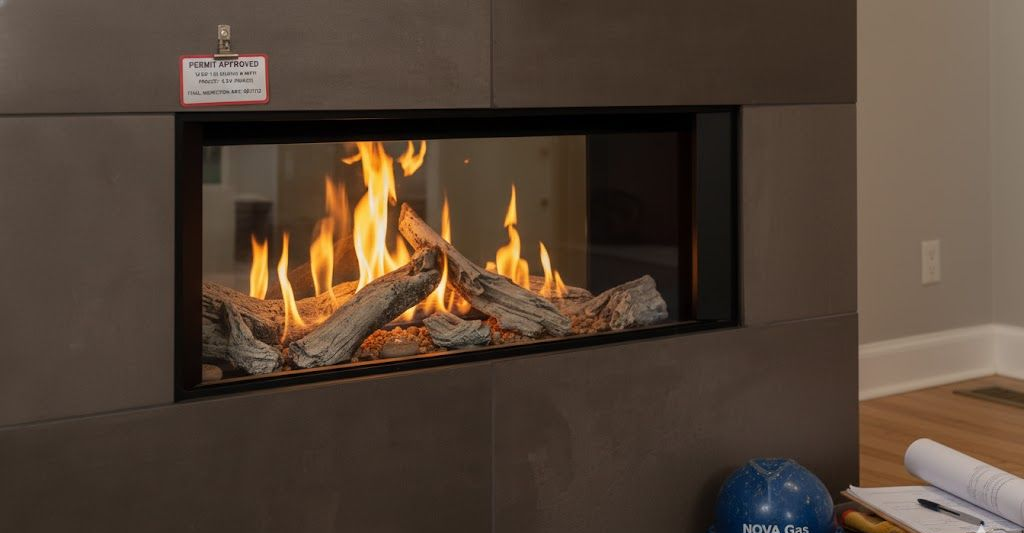
Installing a gas fireplace without a permit in Virginia could lead to:
- Failed home inspections when selling
- Insurance coverage denial in case of fire or gas-related damage
- Fines or penalties from the county
- Forced removal of the fireplace
- Bottom line: Unpermitted work isn’t worth the risk.
Do I Need a Permit to Install a Gas Fireplace in Fairfax County?
Yes,
Fairfax County explicitly requires a mechanical permit for any gas fireplace installation. Here’s what to know:
- Apply via the
PLUS Permit Portal
- All gas appliances must meet
IRC and IFGC requirements
- Only licensed contractors can apply
- Additional
venting or framing work may trigger a building permit
Schedule Expert Installation Help Today!
How to Get a Gas Fireplace Permit in Henrico County, VA
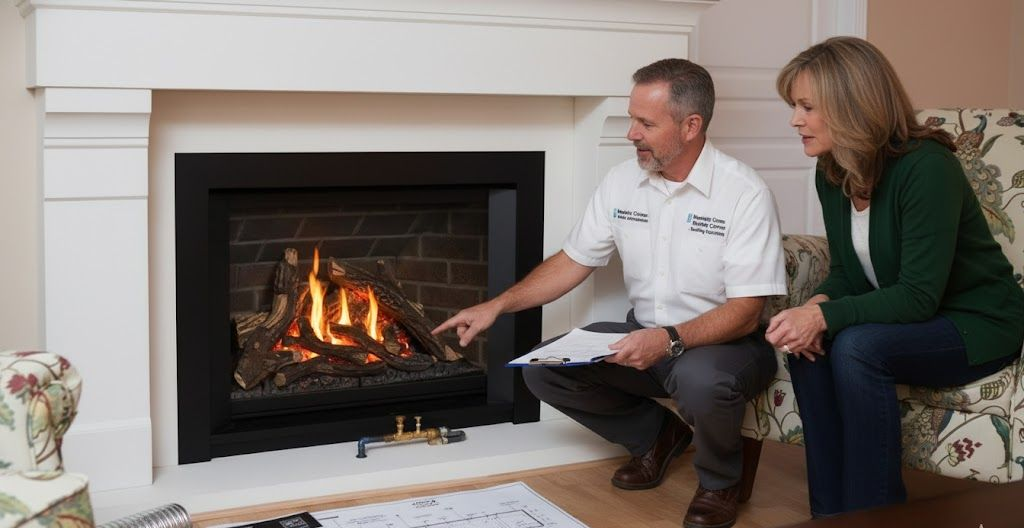
- Use the
Henrico Permit Center
- Call the Building Inspections Office for clarification
- Submit manufacturer specs, gas piping layout, and any venting diagrams
- Schedule inspection once the appliance is connected
Common Questions About Gas Fireplace Permits
Q: What’s the average permit cost for a gas fireplace in Virginia?
A: Most permits fall between $50 and $300, depending on the county and complexity. (This is an industry average and not Nova Gas Works’ pricing.)
Q: Do I need a separate permit for the gas line?
A: Not usually. The mechanical permit covers both the appliance and gas piping in most counties.
Q: How long does the permit process take?
A: Most localities approve permits in 2–5 business days. Plan for 1–2 inspections after installation.
Q: Can I DIY a gas fireplace install?
A: No — most counties require a licensed gas contractor due to fuel-gas safety concerns.
When a Permit May Not Be Required
In rare cases, your project may not require a new permit:
- Like-for-like replacement of an existing gas fireplace
- No new gas lines or venting
- No structural modifications
- However,
always confirm with your local building official before proceeding.

